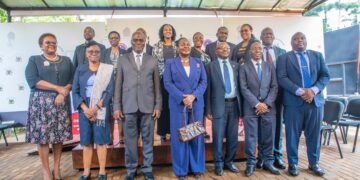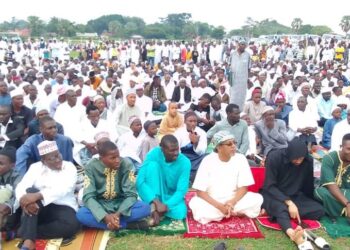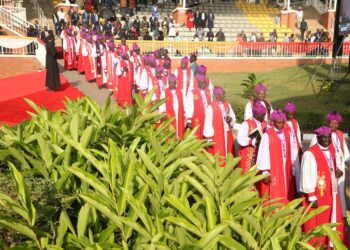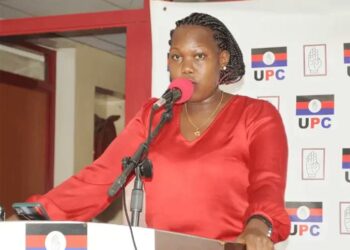Fatima Mekhnas’ boots sink into the golden sand as she surveys the last beach in Morocco’s north. There is optimism in her eyes; a reflection of a dream fulfilled after decades of yearning for a spot on a fishing boat in the Mediterranean.

Behind her, the members of the North African country’s first female artisanal fishing cooperative push a small boat towards the sea, the start of their quest for the life-giving fish the blue waters offer.
As the boat slips into the water, the women jump in and embark on their first-ever government-recognised fishing trip. After two years of training, they have broken through the boundaries of a male-dominated livelihood.
“We live in the sea and if we separate from it, we will die like fish,” says Fatima. “The sea is my entire life and that of my children and the people of the village.”
Fatima is the president of the Belyounech cooperative.
Belyounech is located at the foot of Mount Moses, cut off from the world except for a side facing the sea and overlooking the Spanish enclave of Ceuta, seven kilometres (four miles) to the east. The closing of the Ceuta border in the early 2000s played havoc with the economy of the village.
Village men who had worked in Ceuta were forced to fall back on their grandfathers’ tradition, pulling octopus, scorpionfish, squid and red tuna from the waters to feed their families and sell in nearby towns.
Women returned to their kitchens.
“I was a house cleaner and a nanny in Ceuta. I worked for families for 20 euros a day and made a comfortable living. But when the border was closed, I just stayed home for years and years, watching the sea from my window,” explains 60-year-old Khedouj Ghazil.
Then she and other women began mending nets and cleaning boats – without pay.
The independent fishing sector provides 170,000 direct jobs and secures the livelihood of 5.2 million Moroccans, according to Thami Mechti of the National Maritime Popularization Center in Laarache.
Women’s access to paying jobs in it, however, has been restricted in part due to a lack of training.
But that is changing.
“For two years, we’ve been giving women all the necessary training so they can fish safely and professionally and know how to keep themselves from harm’s way,” Mechti explains.

Of the 19 women in the Belyounech cooperative, only four had previously made money from their catch.
“Men didn’t like the fact that a woman is at sea fishing,” says Fatiha Naji. She remembers the insults she endured when she became a fisherwoman after her husband lost his job as a street vendor when the border closed.
“I would often think what if other women in the village were with me,” she recalls.
The cooperative was launched in March 2018 to help the women enter the market. Initially they mended nets – but this time for money.
Then the women started setting their eyes on the sea.
“Working in the sea is not easy but it is what my sisters and I love. It is finally coming true,” says Fatima.
Attributes: Aljazeera English








































